Professional Courses
Industry-relevant training in Business, Technology, and Design
Categories
Interactive Games
Fun games to boost memory, math, typing, and English skills
Typing
Memory
Math
English Adventures
Knowledge
Difference Between JEE Main and JEE Advanced: Eligibility, Syllabus, and Difficulty
Difference Between JEE Main and JEE Advanced: Eligibility, Syllabus, and Difficulty
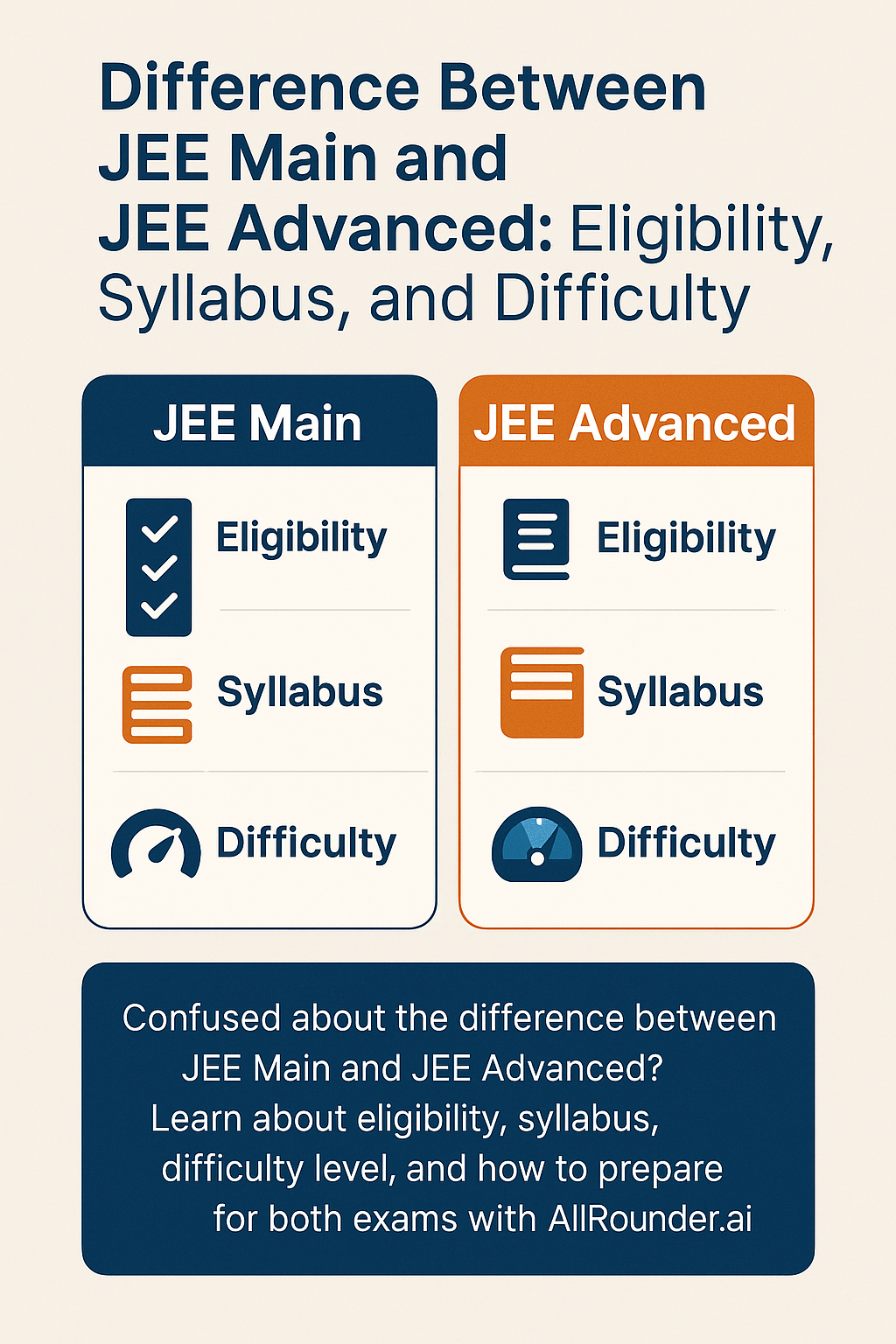
Every year, lakhs of students across India set their sights on cracking the Joint Entrance Examination, better known as JEE. For many, this exam is the gateway to pursuing engineering at some of the most prestigious institutes in the country. Yet, despite how often these exams are mentioned, there is often confusion about the difference between JEE Main and JEE Advanced. Both are part of the same exam structure, but their purpose, eligibility criteria, syllabus coverage, and level of difficulty are quite different.
If you are a student aiming for an engineering career, or a parent guiding your child through the process, it is important to understand exactly how JEE Main and JEE Advanced differ. This knowledge helps you prepare in the right way and set realistic goals for the colleges you want to target. In this detailed guide, we will explore every key difference between JEE Mains and JEE Advanced, from eligibility rules and exam pattern to syllabus, difficulty level, and preparation strategies. By the end, you will have a clear roadmap to decide where to put your focus and how to approach each exam.
What is JEE Advanced?
To begin, let us first answer a very common question: what is JEE Advanced?
JEE Advanced is the second stage of the Joint Entrance Examination. It is conducted once a year and serves as the qualifying exam for admission into the Indian Institutes of Technology (IITs). Students who secure top ranks in JEE Main are eligible to attempt JEE Advanced. This exam is considered one of the toughest entrance tests in India and is known for assessing students on their ability to think logically, solve complex problems, and apply concepts across multiple topics.
The exam is often referred to as IIT JEE Advanced because of its direct link with admissions to IITs. Clearing it successfully can open doors to the most reputed engineering colleges in the country, and for many students, it represents years of preparation and hard work.
If you are in Class 11 or Class 12 and want to prepare step by step, you can begin with strong subject foundations using AllRounder.ai Class 11 courses and Class 12 programs. Building concepts early makes the transition to JEE preparation smoother.
What is JEE Main?
JEE Main is the first stage of the Joint Entrance Examination, conducted by the National Testing Agency (NTA). It is held multiple times a year, giving students several opportunities to improve their scores. Unlike JEE Advanced, JEE Main is not only an eligibility test for IITs but also the admission exam for several other engineering institutions. Through JEE Main, students can secure seats in National Institutes of Technology (NITs), Indian Institutes of Information Technology (IIITs), and other government-funded technical institutes (GFTIs).
The exam has two different papers. Paper 1 is for students aiming at B.E/B.Tech programs, while Paper 2 is for those interested in architecture and planning. Although the exam is based largely on the Class 11 and Class 12 NCERT curriculum, its competitive nature makes preparation a serious task. For many students, JEE Main is the first big hurdle on their path to becoming an engineer.
Students preparing for JEE Main while also handling school subjects can benefit from structured support through AllRounder.ai CBSE courses. These allow you to revise school concepts while keeping exam preparation aligned.
Eligibility Criteria: Who Can Apply?
One of the major differences between JEE Main and JEE Advanced lies in the eligibility criteria.
For JEE Main, the rules are fairly simple. Any student who has passed or is appearing in Class 12 with Physics, Chemistry, and Mathematics can attempt the exam. The exam is open to a wide pool of aspirants across the country.
In contrast, JEE Advanced is much more selective. Only students who rank among the top 2.5 lakh candidates in JEE Main are allowed to appear. This selection cut-off alone shows how competitive JEE Advanced is. Beyond this, the IITs also have age and attempt restrictions. A student can attempt JEE Advanced at most twice in two consecutive years. These restrictions make it important for aspirants to plan carefully and give their best effort during each attempt.
Students who begin their preparation early, even from Class 8, Class 9, and Class 10, often have an advantage since they are already comfortable with fundamental concepts by the time they reach senior school.
Exam Conducting Body
Another difference is in the authority that conducts the exams. JEE Main is conducted by the National Testing Agency (NTA), an independent organization that handles several national-level entrance tests. JEE Advanced, on the other hand, is conducted by one of the IITs on a rotational basis. This rotation adds variety to the exam since each IIT brings its own style of question-setting, often surprising students with innovative and challenging problems.
Number of Attempts
JEE Main allows students multiple attempts. Candidates can sit for the exam twice each year, and they can keep attempting for up to three consecutive years after their Class 12. This flexibility gives students a fair chance to improve their rank and secure admission in NITs or qualify for JEE Advanced.
JEE Advanced is stricter. Students can appear for it a maximum of two times, and only in two consecutive years. This limitation adds pressure, as every attempt is precious and cannot be wasted. It is also why the preparation level for Advanced needs to be very focused and disciplined.
Exam Mode
Both exams are computer-based, which means they are conducted online. For JEE Main, the only exception is the drawing test in Paper 2, which is pen-and-paper. JEE Advanced is entirely computer-based. This online mode ensures transparency but also demands practice from students who may not be comfortable solving under a digital interface. Familiarity with computer-based test formats can make a real difference in time management and accuracy.
Syllabus: JEE Main vs JEE Advanced
The syllabus is another important area where these two exams differ.
JEE Main syllabus is closely aligned with the NCERT curriculum of Class 11 and Class 12. The focus is on basic applications of formulas and concepts. Most questions are straightforward, testing clarity of understanding rather than advanced analytical skills.
JEE Advanced syllabus, while technically similar in scope, goes far deeper. The questions are designed to test whether students can combine multiple concepts and solve problems that require critical thinking. For example, while JEE Main may ask a direct numerical from kinematics, JEE Advanced could create a problem linking kinematics with rotational motion, testing both conceptual depth and analytical skill.
Students who are preparing for both exams often begin with the NCERT-based approach and then gradually move towards solving higher-level problems from reference books. AllRounder.ai ICSE courses and IB curriculum support can provide additional practice for students from different boards, helping them align with JEE requirements.
Exam Pattern
The exam pattern highlights further distinctions.
JEE Main has 90 questions, divided equally across Physics, Chemistry, and Mathematics. Questions include multiple-choice type as well as numerical value type. The paper carries a maximum of 300 marks.
JEE Advanced, however, is much more unpredictable. It has two compulsory papers, each of which may contain a mix of single-choice MCQs, multiple-choice MCQs, comprehension-based questions, numerical problems, and even matrix-match type questions. The marking scheme also changes slightly each year, with variations in negative marking. This unpredictability makes it harder to prepare in a set pattern, pushing students to practice a wide range of problems.
Difficulty Level
The biggest difference between JEE Main and JEE Advanced is the level of difficulty.
JEE Main is moderately difficult. It requires speed, accuracy, and good clarity of NCERT concepts. For most students, JEE Main is manageable with disciplined practice.
JEE Advanced is much tougher. The complexity of questions, the requirement for creative problem-solving, and the competitive environment all make it challenging. Many students and teachers consider JEE Advanced to be among the most difficult engineering entrance exams in the world.
But tougher does not mean impossible. With the right preparation plan and consistent practice, cracking JEE Advanced is achievable.
Why JEE Advanced is Considered Tougher
Several reasons explain why JEE Advanced has a reputation for being extremely difficult. The limited number of attempts increases pressure. The questions are designed to challenge even the brightest minds, combining multiple concepts and requiring logical reasoning. The fact that only the top JEE Main qualifiers can attempt JEE Advanced also means the competition is already among the best students in the country. All of this raises the bar significantly compared to JEE Main.
However, students who treat the challenge positively often find that preparing for JEE Advanced sharpens their thinking skills. It forces them to study concepts more deeply, practice more consistently, and develop a level of discipline that helps not only in exams but also later in their academic and professional careers.
For students looking for a fun and less stressful way to revise, AllRounder.ai learning games can help keep concepts fresh while reducing exam fatigue.
Preparation Strategy: JEE Main vs JEE Advanced
Preparation for JEE Main requires a strong grip on NCERT textbooks. Students should solve NCERT exercises thoroughly and then move on to previous year question papers and mock tests. Since JEE Main is as much about speed as it is about knowledge, practicing under timed conditions is extremely important.
For JEE Advanced, preparation must go further. Students need to work with advanced-level books such as HC Verma for Physics, Cengage for Mathematics, and Irodov for higher problem-solving. Practicing previous year JEE Advanced papers is also crucial, since the exam pattern changes frequently. Students must get used to the variety of questions and marking schemes.
Regular revision and concept clarity are vital for both exams. Structured platforms like AllRounder.ai can help organize study schedules, offer subject-wise practice, and provide smart feedback that identifies weak areas.
Which Exam Should You Focus On?
The choice between focusing on JEE Main or JEE Advanced depends on your goals. If your dream is to secure a seat in an IIT, then JEE Advanced is non-negotiable. But even if IITs are not your target, performing well in JEE Main can still lead to excellent opportunities at NITs, IIITs, and other reputed institutes.
Many students focus on preparing for JEE Advanced because the preparation automatically covers JEE Main-level concepts. However, for students who may feel overwhelmed, focusing on JEE Main first is a practical strategy. Once confidence builds, they can gradually push towards Advanced-level questions.
Frequently Asked Questions
-
Is JEE Advanced tougher than JEE Main? Yes, JEE Advanced is tougher, both in terms of question complexity and competition level.
-
How many attempts are allowed for JEE Advanced? Students can attempt JEE Advanced a maximum of two times, in two consecutive years.
-
How many students qualify for JEE Advanced? About 2.5 lakh top rankers from JEE Main are eligible each year.
-
Is JEE Advanced computer-based? Yes, the exam is conducted entirely online.
-
How many marks are needed to clear JEE Advanced? This varies each year depending on cut-off trends, but typically qualifying marks are lower than JEE Main due to the tougher nature of the exam.
Conclusion
The difference between JEE Main and JEE Advanced is clear when you look at eligibility, exam pattern, syllabus, and difficulty level. JEE Main is the starting point, a test of NCERT-based knowledge and speed. JEE Advanced, on the other hand, is the final challenge, designed to identify the most capable minds for IIT admissions.
Both exams play a crucial role in shaping engineering careers in India. Students who prepare with clarity, consistency, and the right resources can succeed in both. With the support of platforms like AllRounder.ai, preparation can become more organized and less stressful. Remember, every toppers’ journey begins with small, consistent steps, and with the right mindset, the difference between JEE Main and JEE Advanced will no longer feel like a barrier, but a stepping stone to your success.
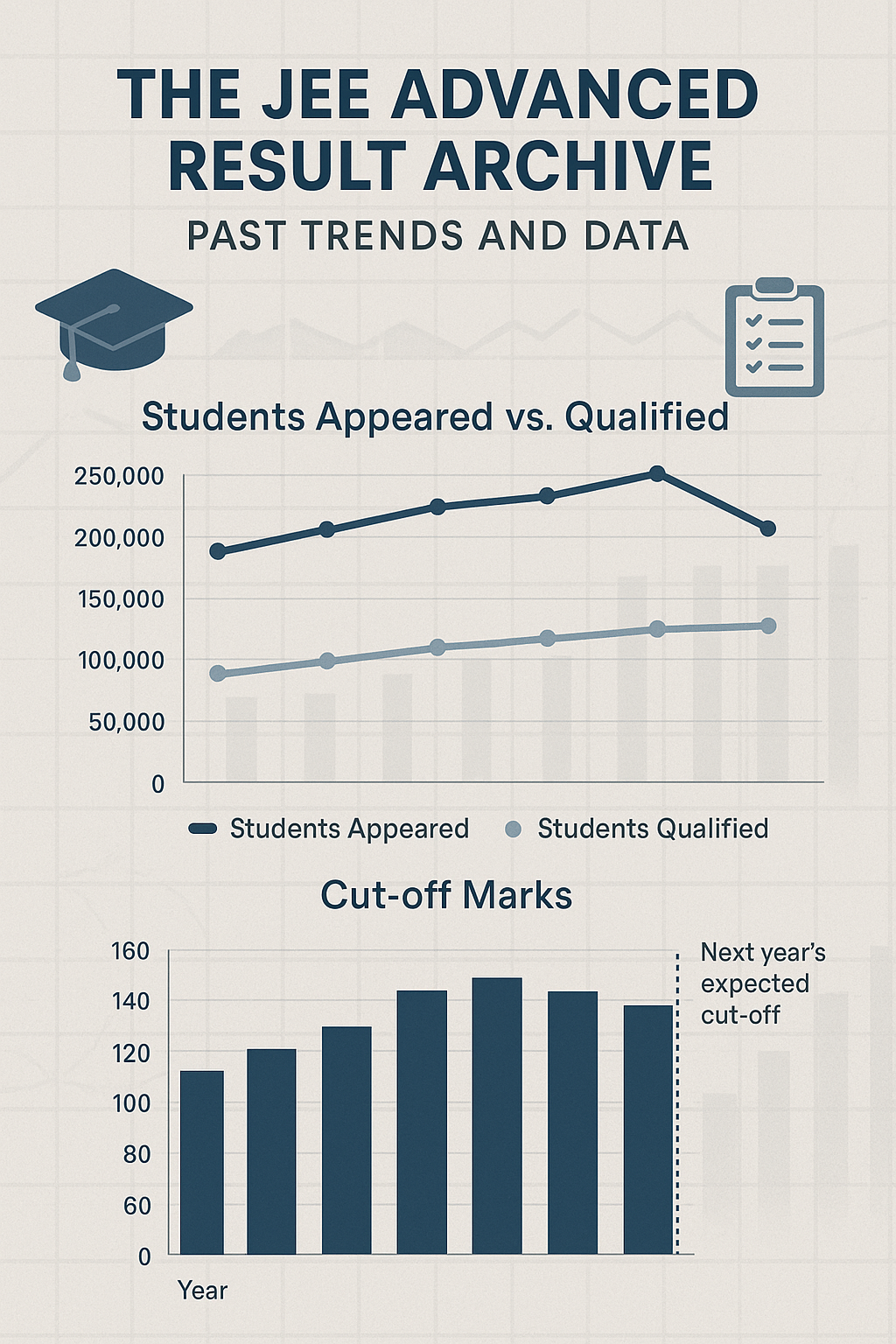
Explore the JEE Advanced Result Archive with past years’ data, insights on students appeared vs qualified, cut-off...
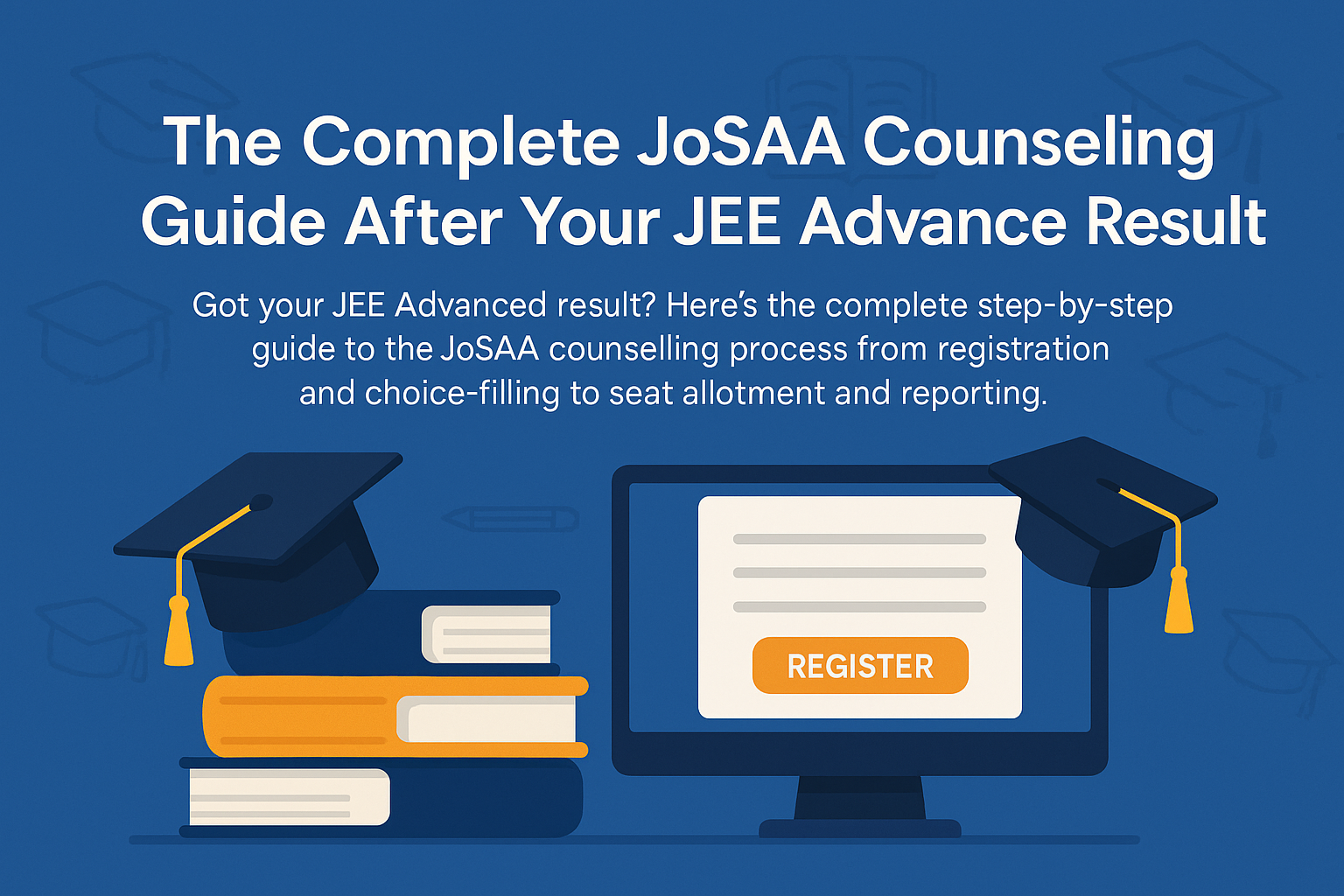
Got your JEE Advanced result? Here’s the complete step-by-step guide to the JoSAA counselling process from...
.jpg?width=500)
How many seats in JEE Advanced? Explore IIT seat distribution across all branches like CSE, Mechanical, Aerospace,...
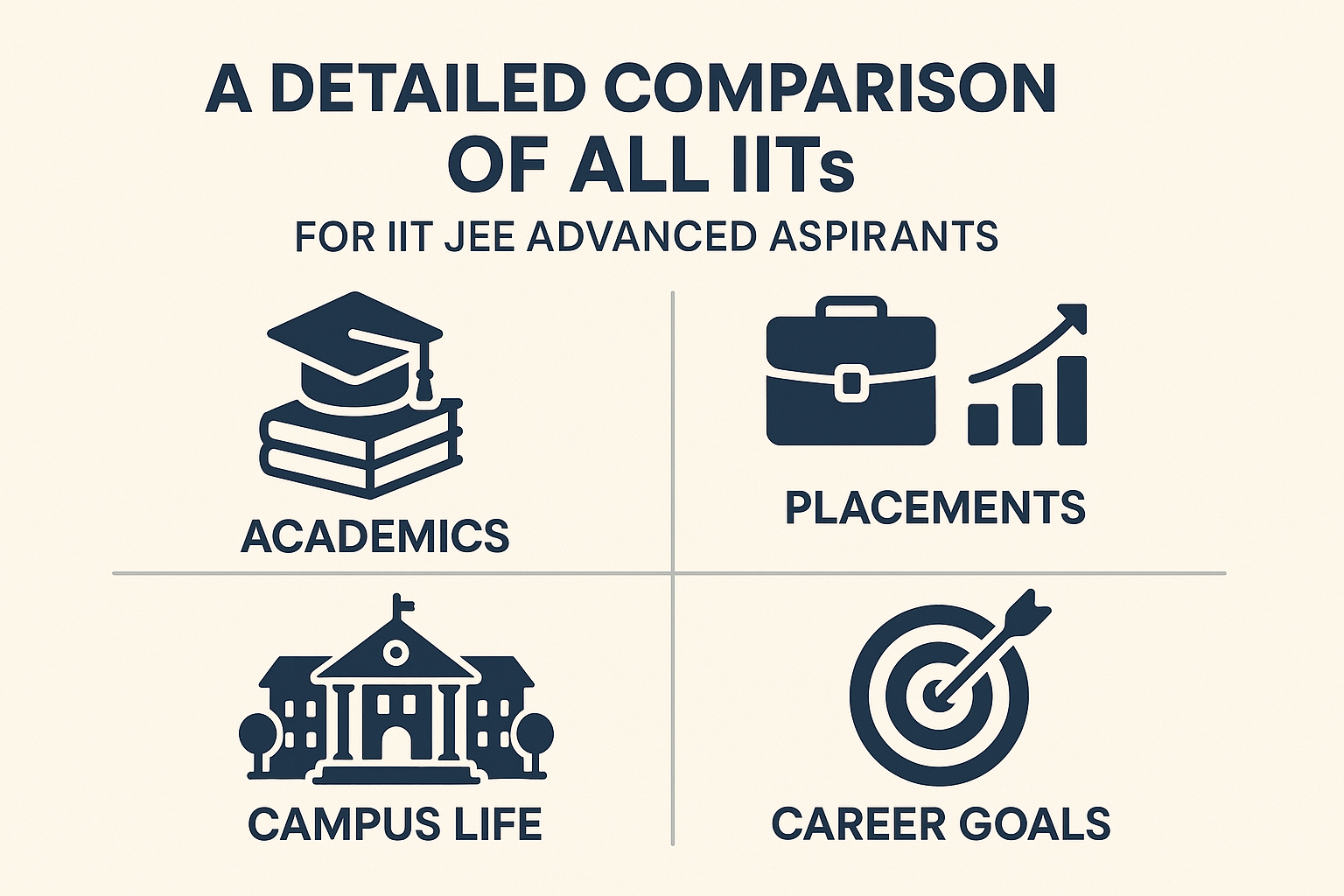
Compare all IITs for JEE Advanced aspirants. Learn about academics, placements, campus life, and find which IIT is...
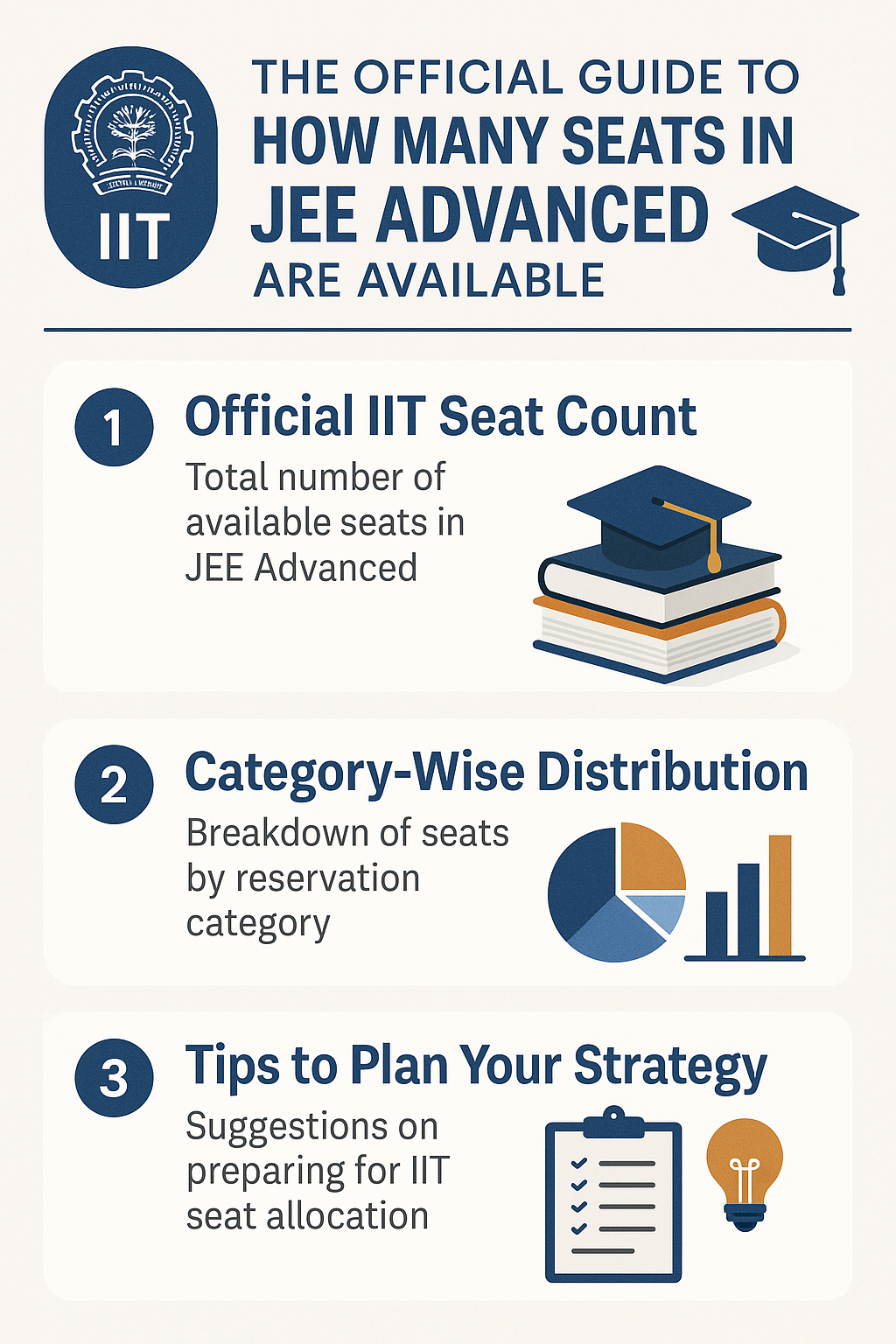
Wondering how many seats in JEE Advanced are available? Get the official IIT seat count, category-wise distribution,...
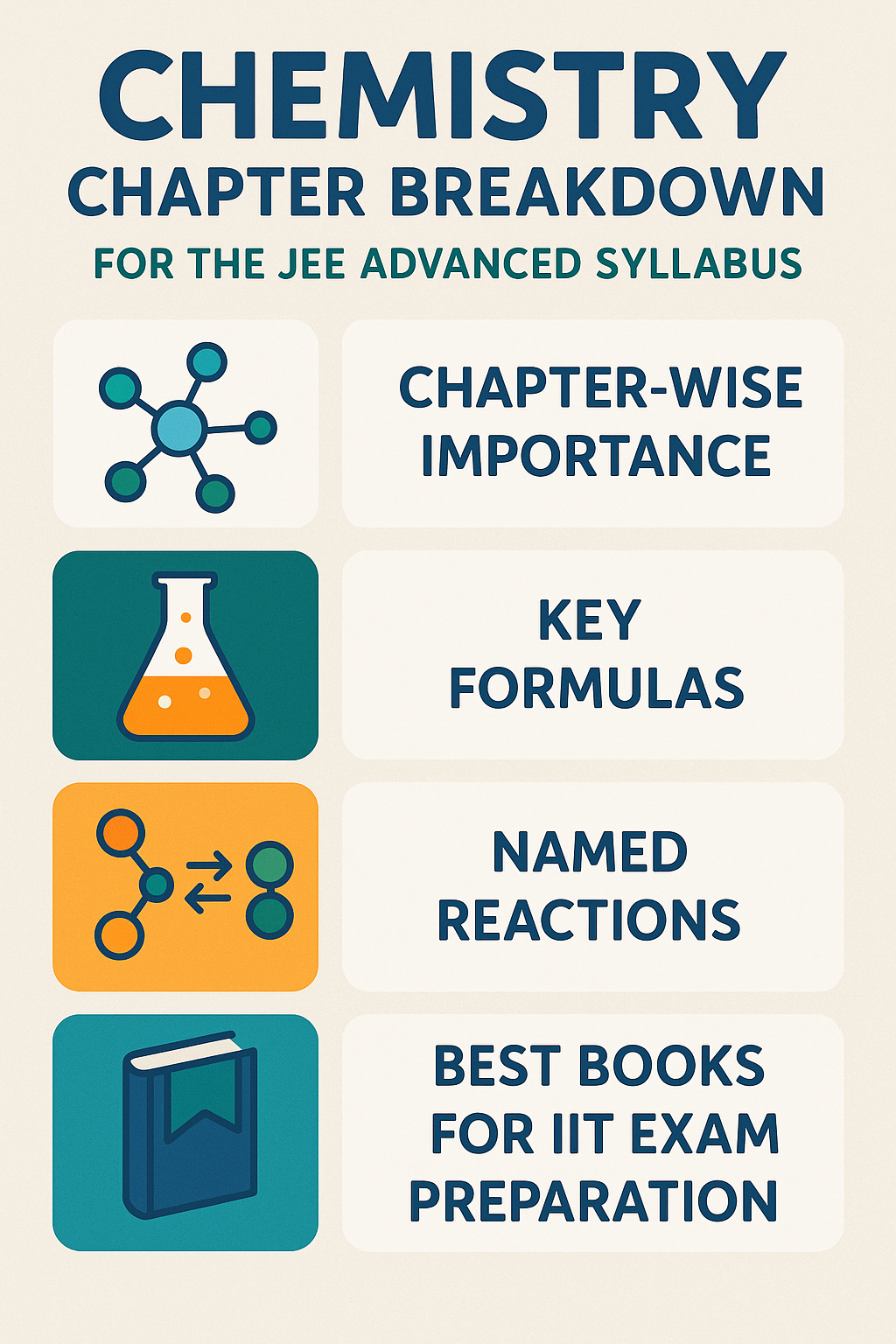
Explore the Chemistry JEE Advanced syllabus with chapter-wise importance, key formulas, named reactions, and the...
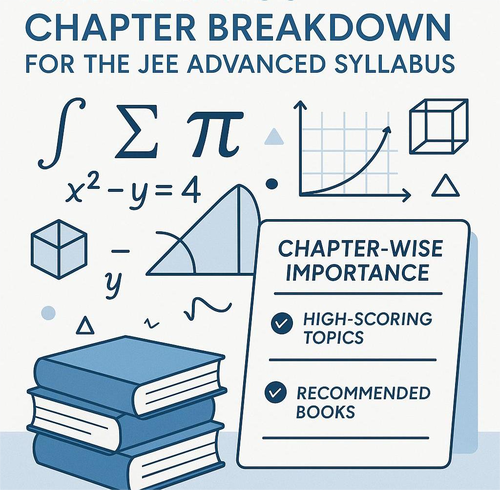
Explore the Maths JEE Advanced syllabus with chapter-wise importance, high-scoring topics, and the best books to...
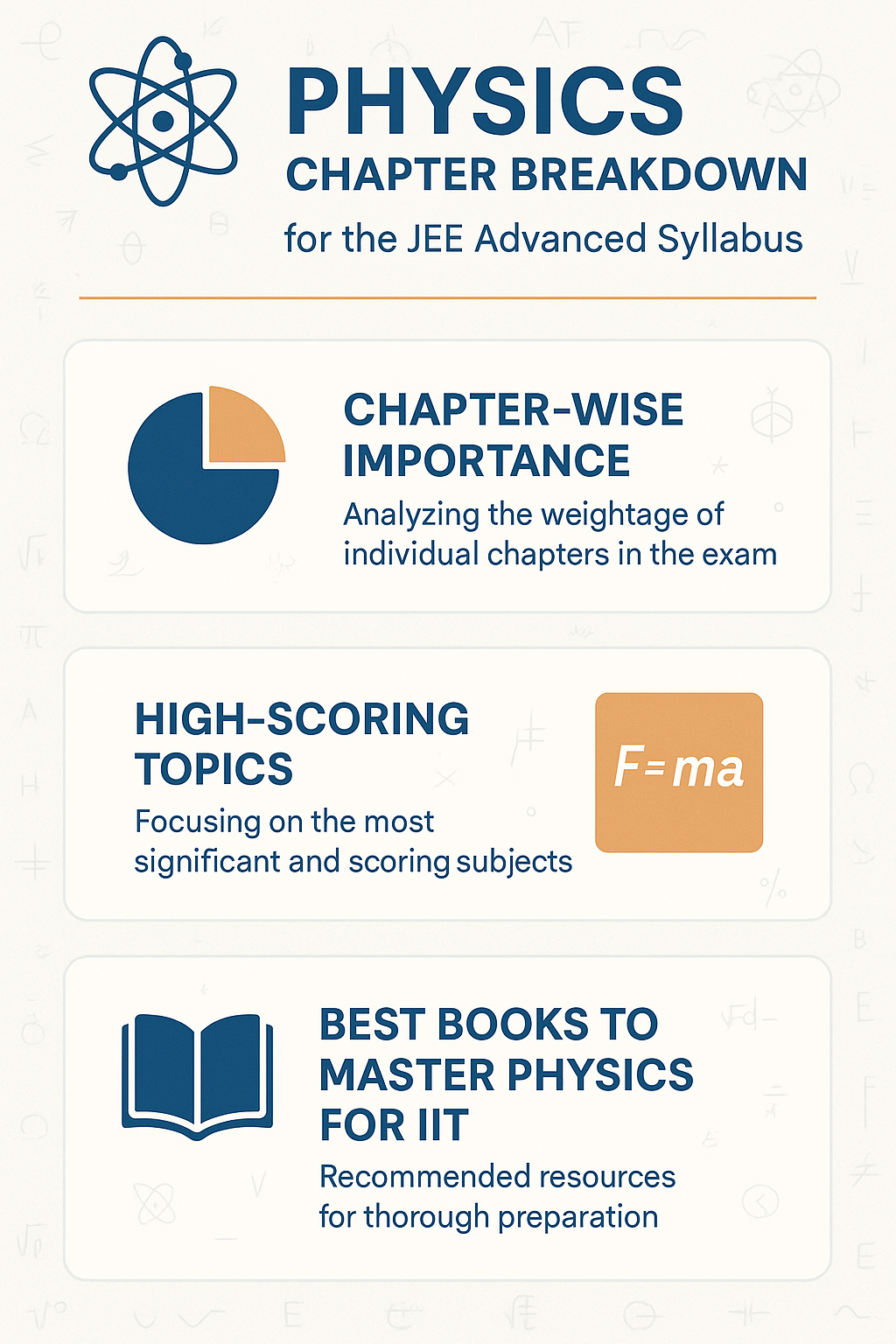
Explore the Physics portion of the JEE Advanced syllabus. Get chapter-wise importance, high-scoring topics, and the...
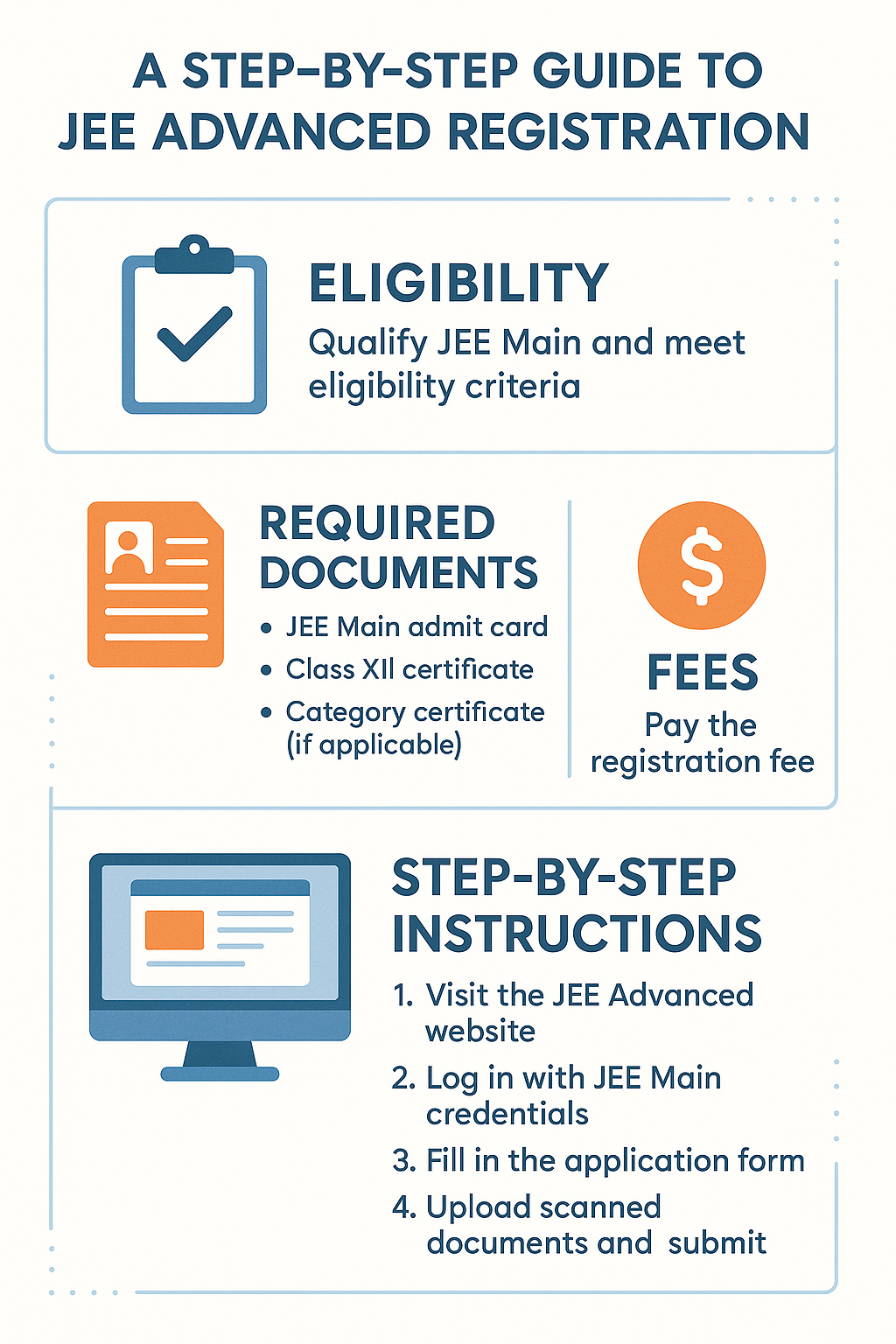
Learn the complete JEE Advanced registration process. Check eligibility, required documents, fees, and step-by-step...
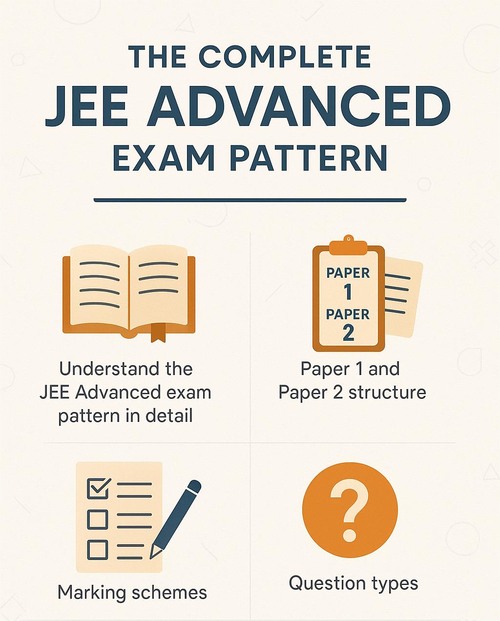
Understand the JEE Advanced exam pattern in detail. Learn about Paper 1 and Paper 2 structure, marking schemes,...
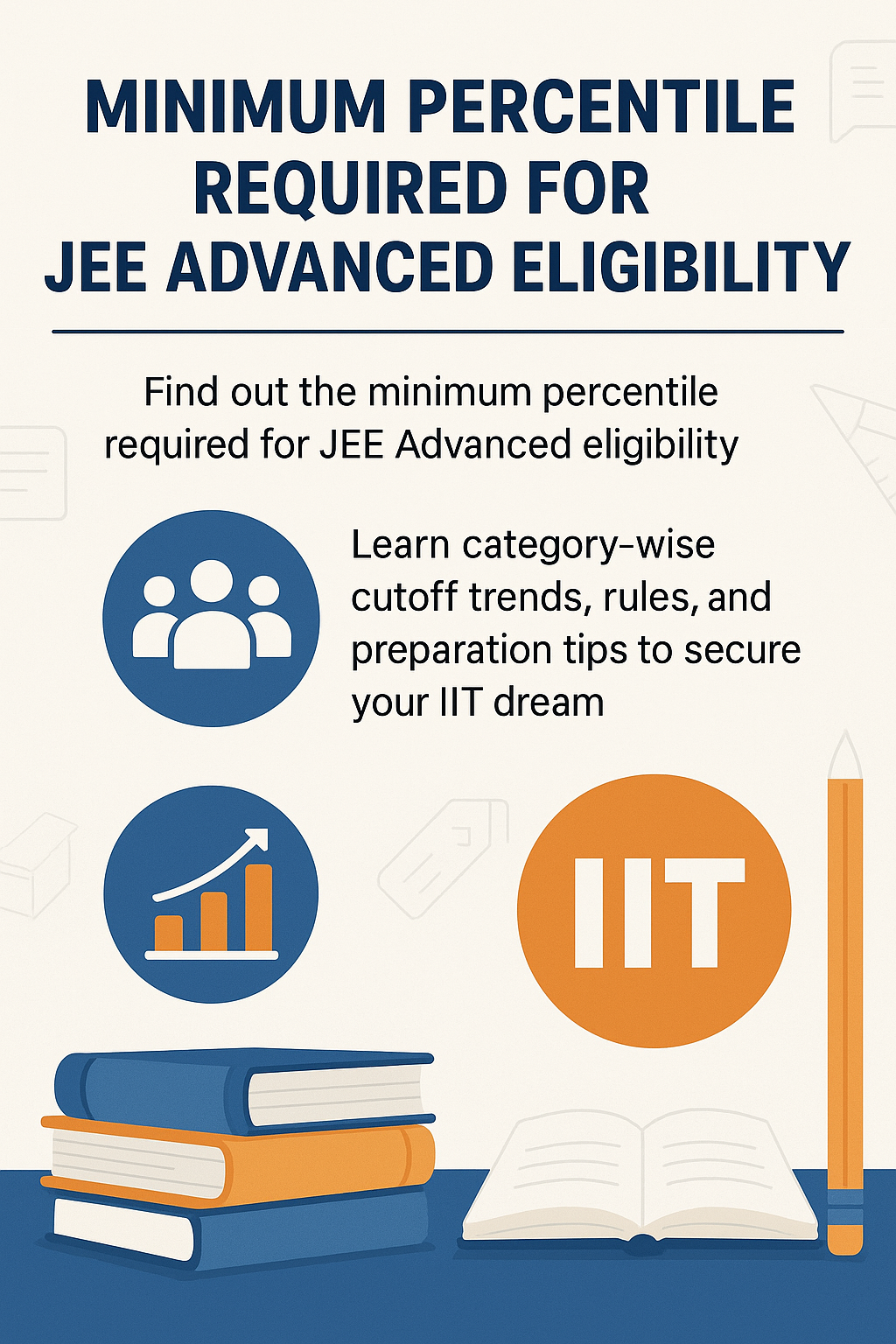
Find out the minimum percentile required for JEE Advanced eligibility. Learn category-wise cutoff trends, rules, and...
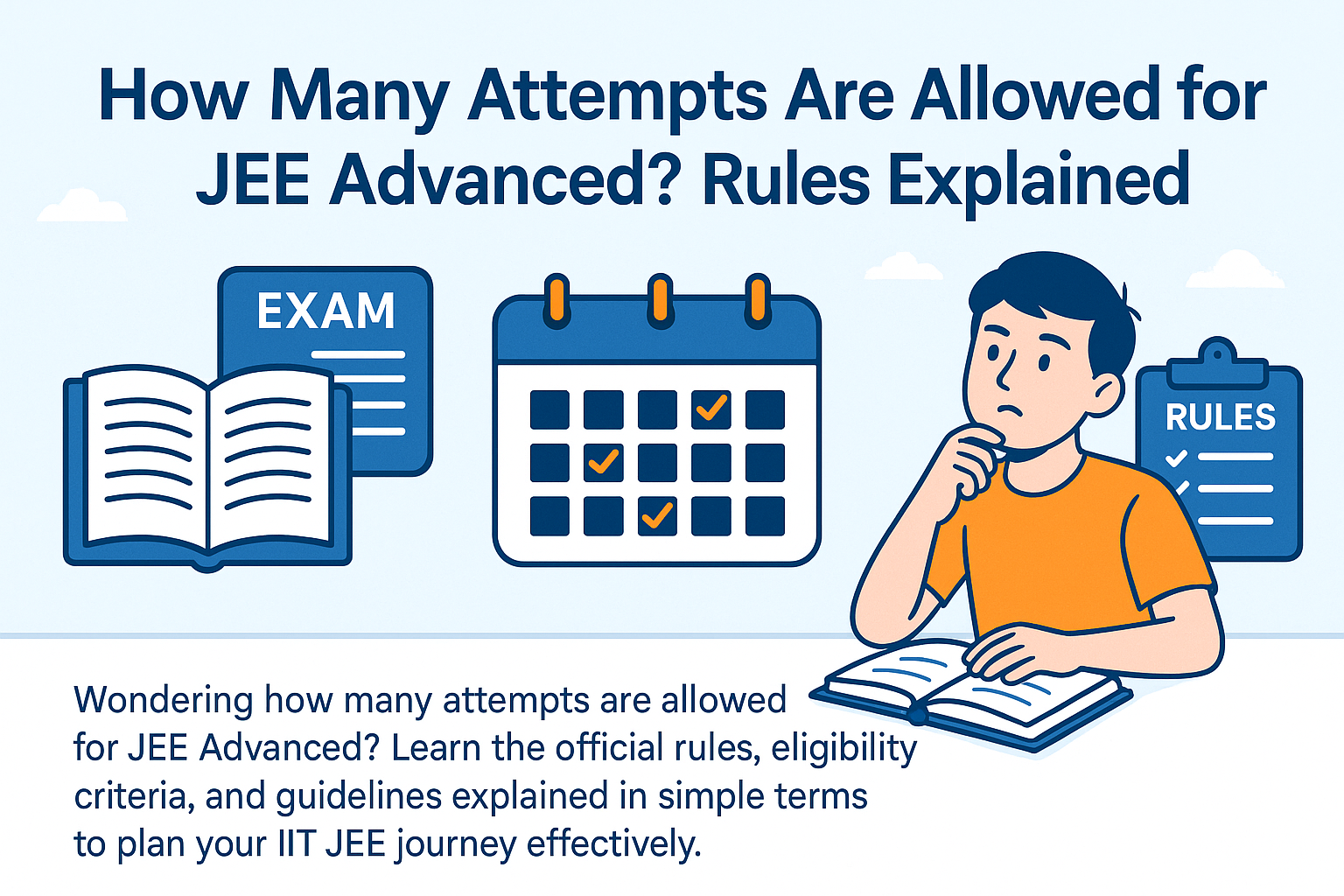
Wondering how many attempts are allowed for JEE Advanced? Learn the official rules, eligibility criteria, and...
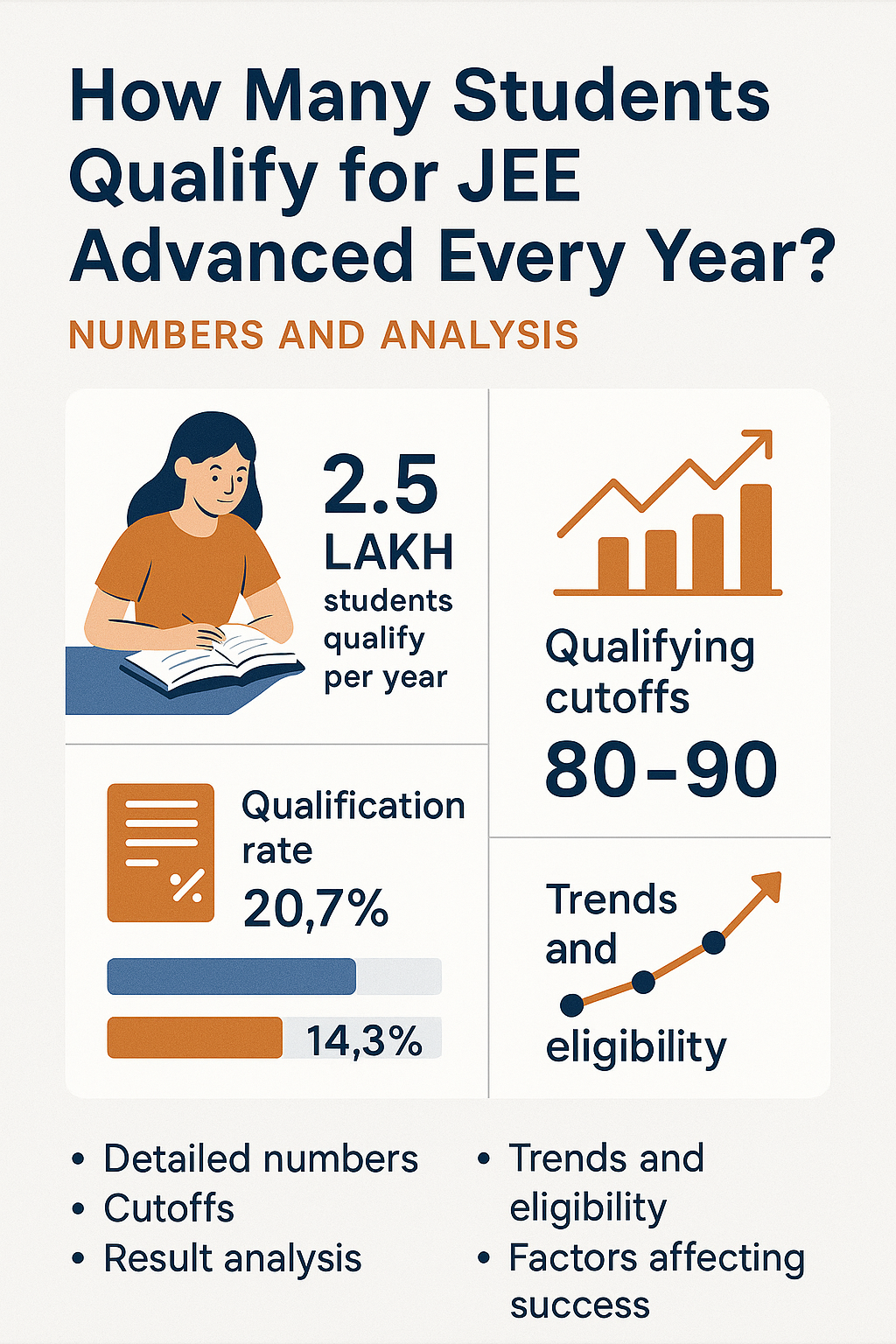
Discover how many students qualify for JEE Advanced every year with detailed numbers, cutoffs, and result analysis....

Stay updated with the latest JEE Advanced news. Get details on exam dates, registration process, results, and...
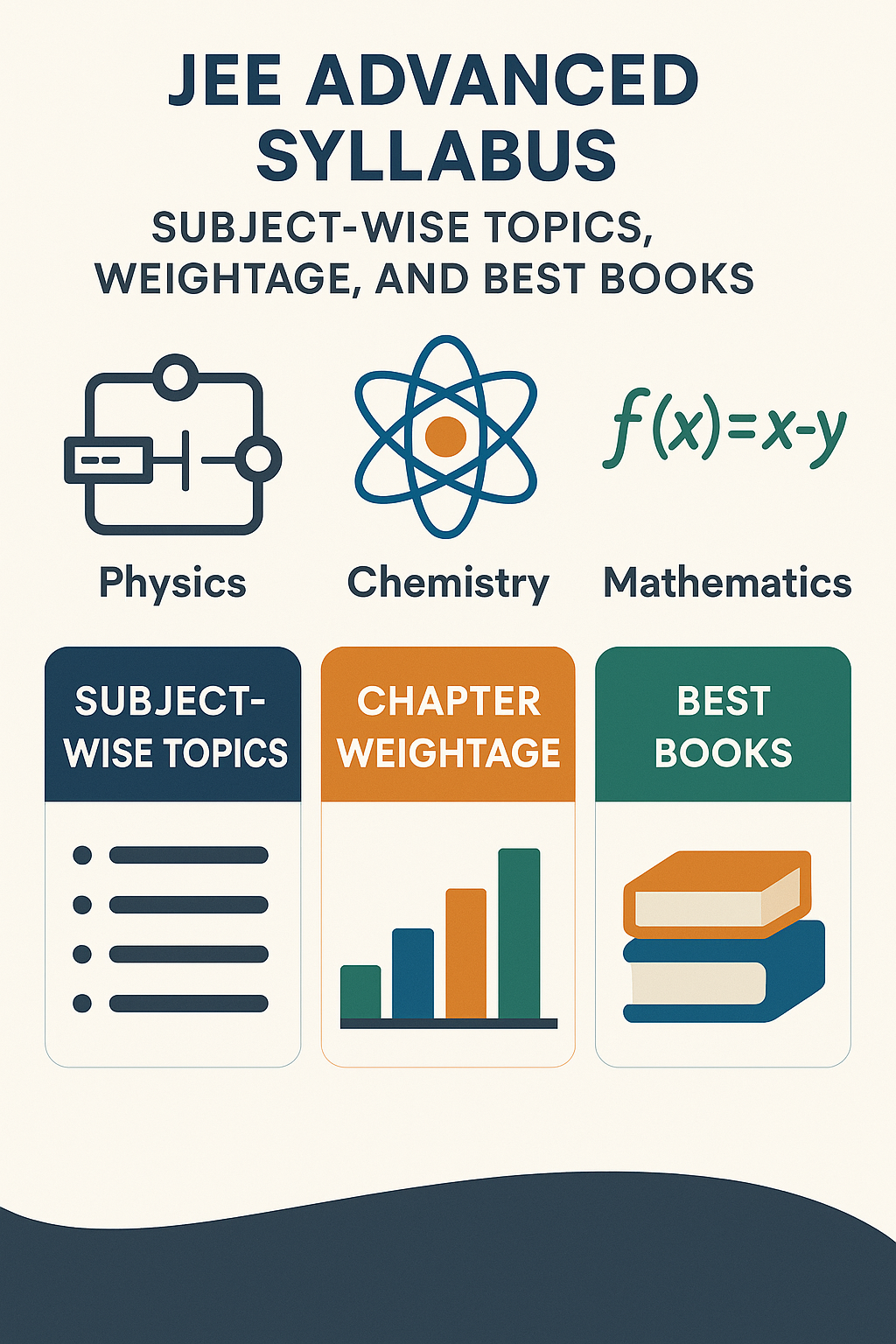
Explore the complete JEE Advanced syllabus with subject-wise topics, chapter weightage, and best books for Physics,...
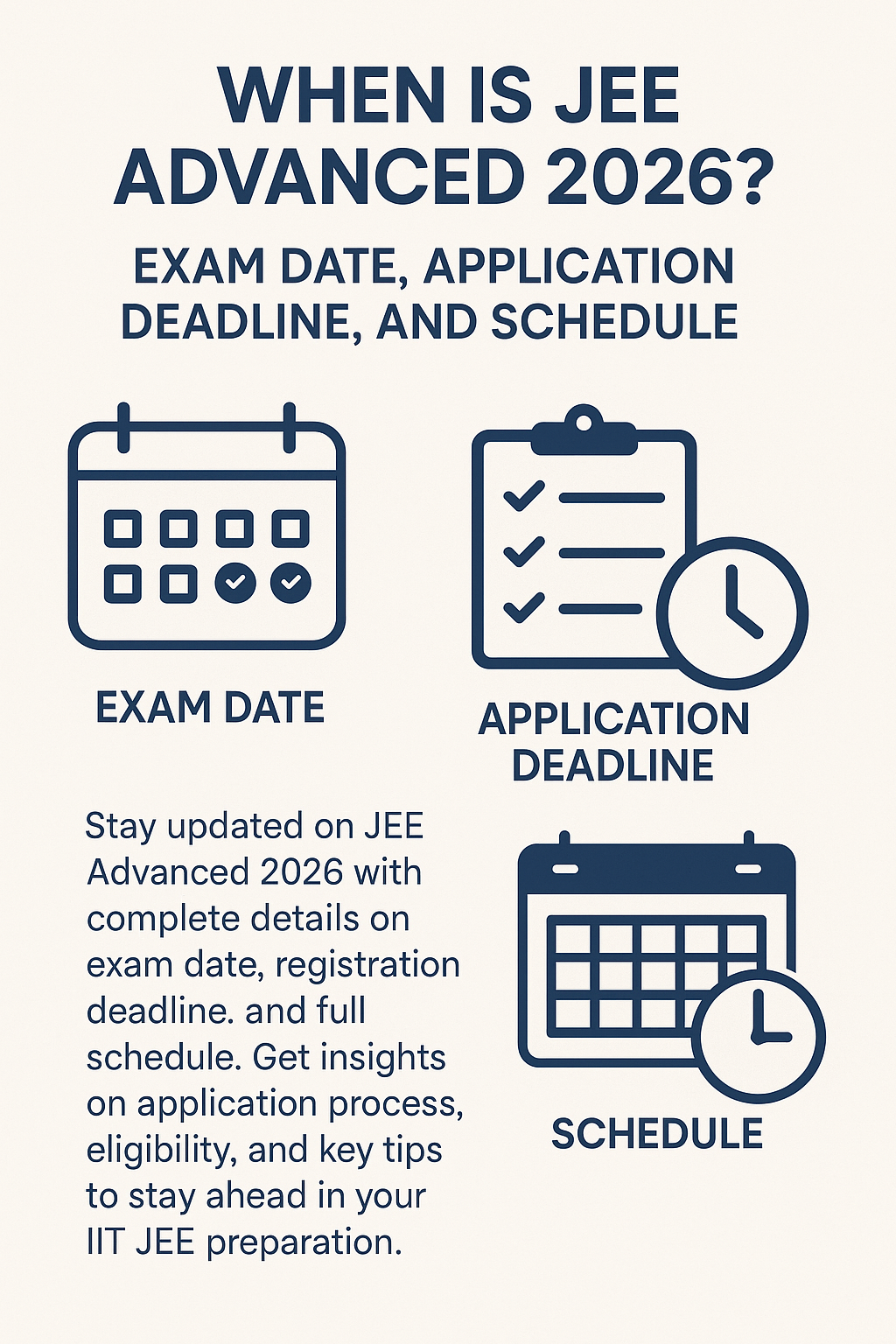
Stay updated on JEE Advanced 2026 with complete details on exam date, registration deadline, and full schedule. Get...
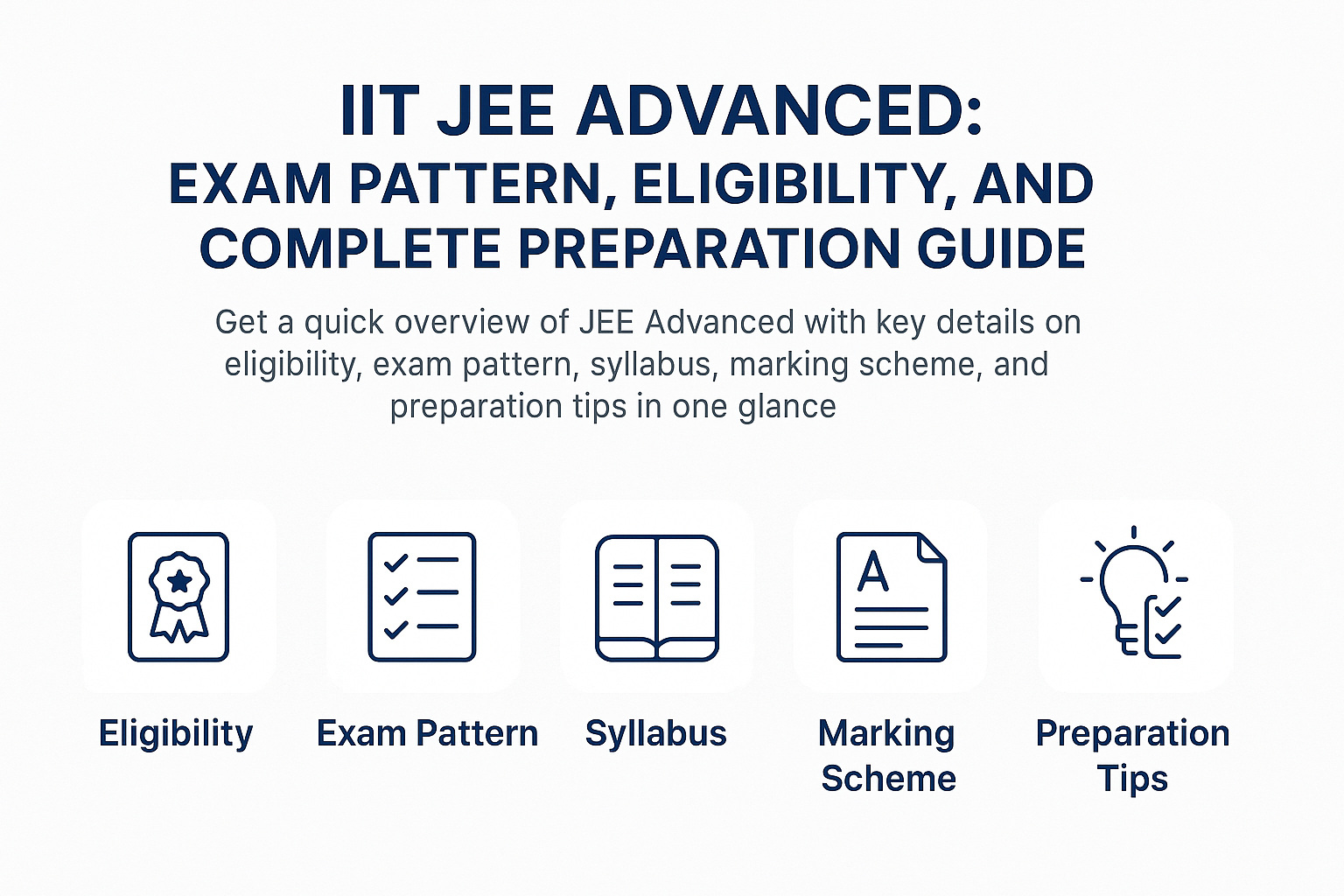
Get a quick overview of JEE Advanced with key details on eligibility, exam pattern, syllabus, marking scheme, and...
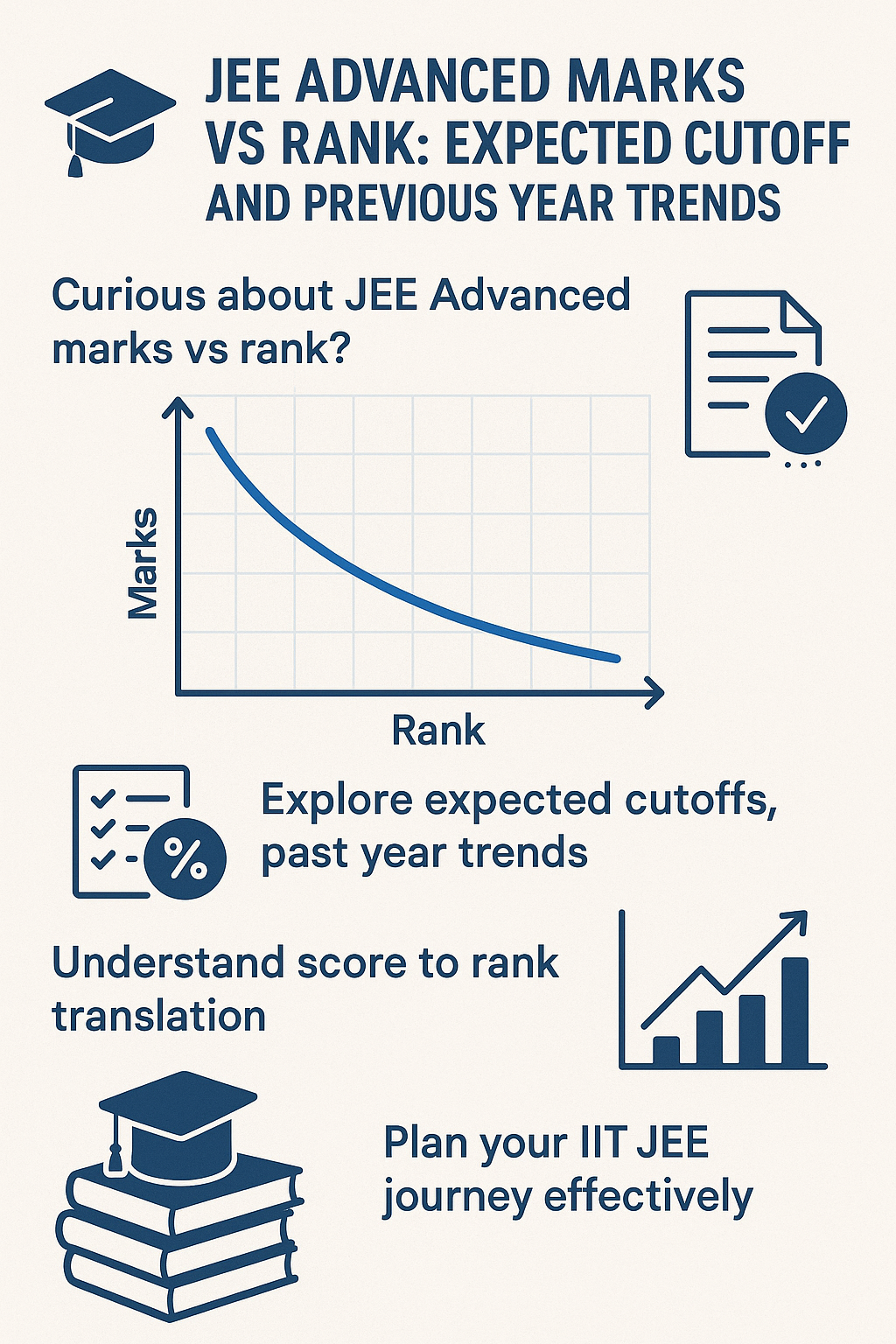
Curious about JEE Advanced marks vs rank? Explore expected cutoffs, past year trends, and how your score translates...

Confused about the difference between JEE Main and JEE Advanced? Learn about eligibility, syllabus, difficulty...
Resources
-
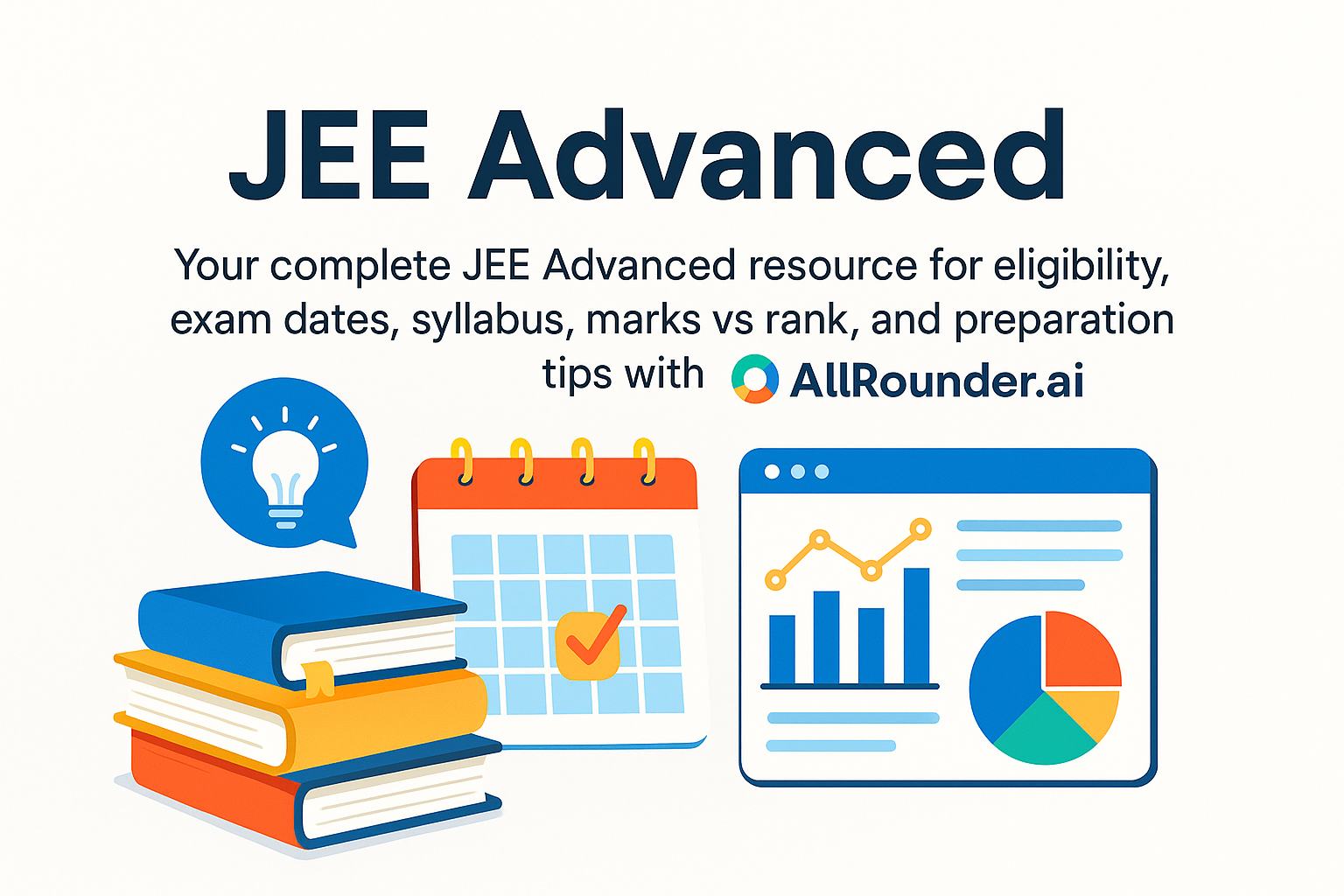
Your complete JEE Advanced resource for eligibility, exam dates, syllabus, marks vs rank, and...
-
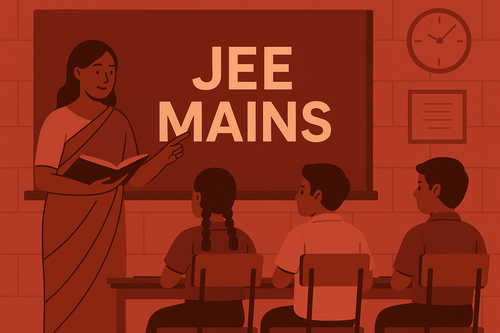
Understand the entire JEE Main process, from application and eligibility rules to the exam...
-

Explore the IB Board – a global curriculum emphasizing holistic, student-centered learning...
-

Learn about CBSE – India’s national school board offering a standardized curriculum, NCERT...
-

Explore everything about the ICSE board – its curriculum, subjects, exam format, and academic...

